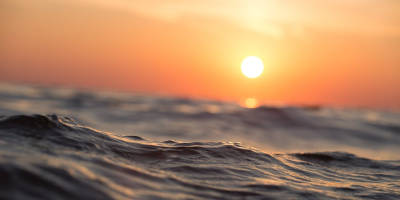← students

| First name: | Mina |
| Last name: | Bizic Ionescu |
| Country: | Israel |

Thesis Subject:A polyphasic comparison between composition and activity of prokaryotes on marine and freshwater organic aggregates
| Education: | |
| 4/2010-
PhD thesis; DAAD PhD Scholarship Max Planck Institute for Marine Microbiology & Leibniz Institute of Ecology and Inland Fisheries Department: Molecular Ecology/ Ecology of stratified lakes |
|
| 11/2009-4/2010
Training in Molecular Ecology MPI-MM/Bremen |
|
| 2005-2006 Academic program of PAIDEIA - The European Institute for Jewish Studies in Sweden -Franz Rosenzweig Felowship | |
| 2003-2005
University of Belgrade, Faculty of Agriculture, Masters project (The adaptation of 1-year old juvenile carp) Prof. Zoran Markovic / University of Belgrade |
|
| 1998-2005
University of Belgrade, Faculty of Biology Diploma (BSc + MSc) |
|
| 1994-1998 Gymnasium of Natural Sciences Belgrade, Serbia |
Scientific Interests and Goals:My research interests mainly focus on the dynamics of microbial communities on marine and lake snow particles and a comparison of bacterial colonization of particles in limnic vs. marine ecosystems. With this I aim to better understand who are the different microorganisms that have a similar biogeochemical function in the two different aquatic systems, thus belonging to the same microbial guild.
Particulate organic matter aggregates (e.g., marine snow, lake snow, flocs), ranging in size from a few micrometers to several millimeters, are ubiquitous in aquatic environments. Aggregation of living and non-living material is a natural phenomenon affected by a number of well-documented physical, chemical and biological processes, and represents an important mechanism of vertical transport of material to the benthos. Consequently, benthic organisms, such as molluscan shellfish, are exposed to a steady supply of marine aggregates and the various microorganisms contained within. Marine Snow plays an important role not only to the marine life but also in a global aspect. Atmospheric carbon in the form of carbon dioxide fixed by phytoplankton and subsequently transported to the ocean floor is thought to remain out of contact with the atmosphere for perhaps thousands of years. Projected elevations in ocean temperatures may result in further stratification of the water column, leading to a decreasing rate of deep-sea carbon storage.
Particulate organic matter aggregates (e.g., marine snow, lake snow, flocs), ranging in size from a few micrometers to several millimeters, are ubiquitous in aquatic environments. Aggregation of living and non-living material is a natural phenomenon affected by a number of well-documented physical, chemical and biological processes, and represents an important mechanism of vertical transport of material to the benthos. Consequently, benthic organisms, such as molluscan shellfish, are exposed to a steady supply of marine aggregates and the various microorganisms contained within. Marine Snow plays an important role not only to the marine life but also in a global aspect. Atmospheric carbon in the form of carbon dioxide fixed by phytoplankton and subsequently transported to the ocean floor is thought to remain out of contact with the atmosphere for perhaps thousands of years. Projected elevations in ocean temperatures may result in further stratification of the water column, leading to a decreasing rate of deep-sea carbon storage.
Selected Publications:1.Ionescu D, Siebert C, Polerecky L, Munwes YY, Lott C, Häusler S, Bižić-Ionescu M, Quast C, Peplies J, Glöckner FO, Ramette A, Rödiger T, Dittmar T, Oren A, Geyer S, Stärk HJ,Sauter M, Licha T, Laronne JB, de Beer D (2012) Microbial and chemical characterization of underwater fresh water springs in the Dead Sea.
PLoS One, 7(6):e38319.
2.Eckert W, Sulimani B, Bizic M (2010) Sedimentation rates of organic and inorganic matter and of particulate phosphorus in the Jordan Delta: a key to the perception of erosion processes in the watershed and their relevance to water quality of Lake Kinneret. Annual report to Israel Authority of water and sewage.
3.Eckert W, Parparov A, Bizic M, Sulimani B (2009)Feasibility study for monitoring dissolved and particulate carbon in Lake Kinneret- Phase II. Final report to the Israel Water Authorities.
4.Eckert W, Bizic M (2008) Sedimentation rates of organic and inorganic matter and of particulate phosphorus in the Jordan Delta: a key to the perception of erosion processes in the watershed and their relevance to water quality of Lake Kinneret. Annual report to Israel Authority of water and sewage.
PLoS One, 7(6):e38319.
2.Eckert W, Sulimani B, Bizic M (2010) Sedimentation rates of organic and inorganic matter and of particulate phosphorus in the Jordan Delta: a key to the perception of erosion processes in the watershed and their relevance to water quality of Lake Kinneret. Annual report to Israel Authority of water and sewage.
3.Eckert W, Parparov A, Bizic M, Sulimani B (2009)Feasibility study for monitoring dissolved and particulate carbon in Lake Kinneret- Phase II. Final report to the Israel Water Authorities.
4.Eckert W, Bizic M (2008) Sedimentation rates of organic and inorganic matter and of particulate phosphorus in the Jordan Delta: a key to the perception of erosion processes in the watershed and their relevance to water quality of Lake Kinneret. Annual report to Israel Authority of water and sewage.


